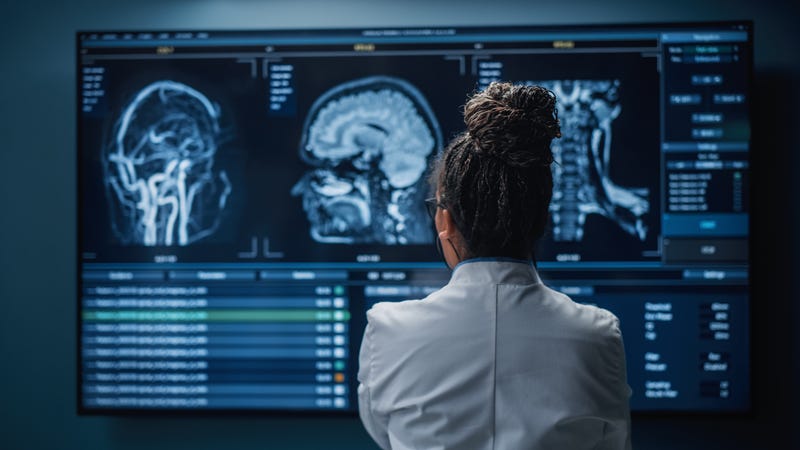
ST. LOUIS (KMOX) - A new study out of Washington University has found that COVID-19 infections increase people's risk of long-term brain problems. KMOX health editor Fred Bodimer spoke with lead researcher, Dr. Ziyad Al Aly, to learn more.
Dr. Al Aly explained that the study gathered 150,000 people who'd been infected with COVID-19 and compared then to nearly 11 million who had not gotten it.
"What we found is that the people who got COVID-19 were experiencing brand problems up to a year after the initial infection," he said. "And those included headaches, strokes, in some cases, inflammation of the brain and other neurologic disorders."
That also includes Alzheimer's, he said, which is of great concern to researchers.
He also explained that the risk affects people regardless of things like age, gender, and preexisting health conditions.
"Certainly anybody is at risk," he said. "Anyone is potentially at risk after they get COVID-19 to have this increased risk of developing serious neurologic conditions up to a year later."
He said other conditions can crop up after a COVID infection too, like seizures and migraines, or even peripheral nerve disorders.
"This is most likely triggered by the inflammation that the virus induces in the body, and subsequently all those neurologic manifestations up to a year later," he said.
He said the most important thing for people to know if they experience these symptoms is that they are not alone, and that they should seek help. He also encouraged getting vaccinated for those who aren't already, and to do your best to reduce subsequent infections.
Hear more on the WashU study that looked at long-term effects of COVID-19:
Copyright 2022 KMOX (Audacy). All Rights Reserved.
Follow KMOX | Facebook | Twitter | Instagram
Listen on the free Audacy app.
Tell your smart speaker to play K M O X.

